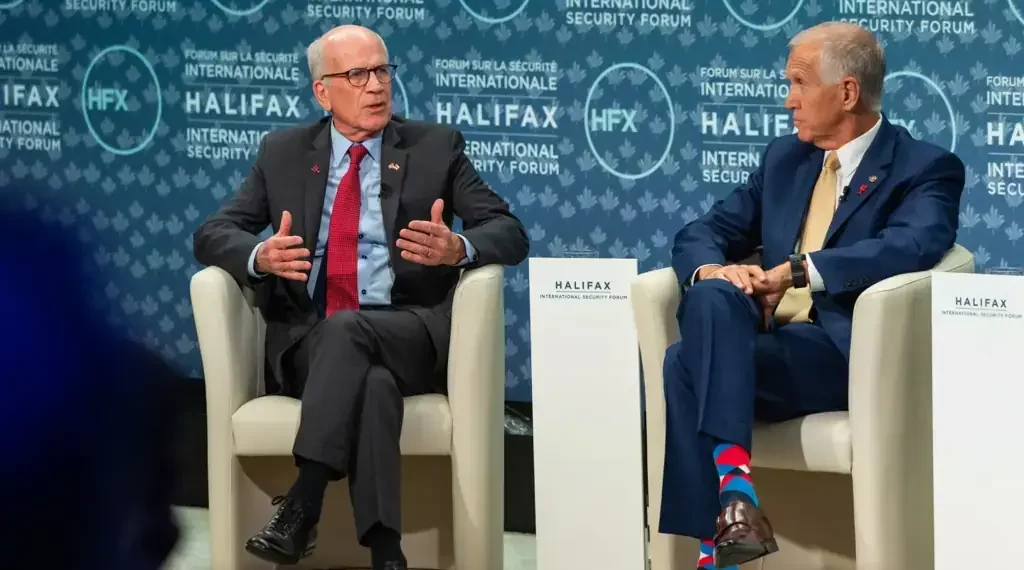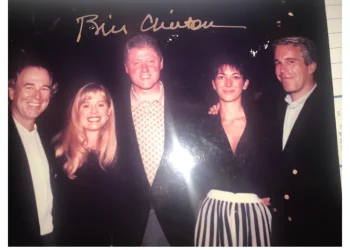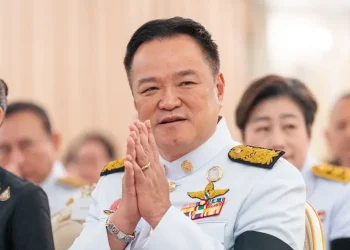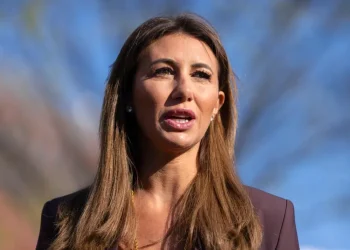US Senators Raise Concerns Over Ukraine Peace Plan Amid Confusion About Its Origins
Several US senators said they were assured by Secretary of State Marco Rubio that a controversial peace proposal linked to President Donald Trump does not represent official US policy, after widespread concern that the document aligns closely with Russia’s demands in the ongoing conflict with Ukraine.
The clarification came during the Halifax International Security Forum in Canada, where lawmakers from both parties warned that the plan would grant significant concessions to Moscow and undermine Ukraine’s territorial integrity. Rubio reportedly told the senators that the widely discussed outline reflected a “wish list” from the Russian side rather than a formally endorsed position of the US government.
US Senators Push Back as Ukraine Peace Plan Draws Criticism for Aligning With Russian Goals
The proposal, which contains twenty-eight points and has circulated in diplomatic channels, would require Ukraine to cede substantial territory—an idea repeatedly rejected by President Volodymyr Zelenskyy. Trump has suggested that Ukraine should accept the plan by the end of next week, a timeline that has further alarmed lawmakers who fear it rewards Moscow’s aggression.
In opening remarks, senators at the forum emphasized that accepting such terms could set a dangerous precedent and encourage other governments to use force to advance territorial claims.
Senators Question Origins of Peace Plan
Senators from both parties told attendees that the proposal had caused significant concern on Capitol Hill, particularly because it appeared to have been shaped by discussions between the Trump administration and the Kremlin without involving Kyiv.
Independent Sen. Angus King of Maine, a member of the Senate Foreign Relations Committee, said the proposal lacked moral, legal, or political justification for requiring Ukraine to surrender territory.
“It rewards aggression. This is pure and simple,” King said during a panel discussion. He compared the proposal to the 1938 Munich Agreement—an act of appeasement that failed to prevent further conflict in Europe. King noted that Zelenskyy has repeatedly rejected any peace arrangement requiring Ukraine to relinquish sovereign territory.
Democratic Sen. Jeanne Shaheen added that Rubio had contacted her and Republican Sen. Mike Rounds to clarify the situation before traveling to Geneva for further talks with European and Ukrainian officials.
“This is a Russian proposal,” Shaheen said. “There is so much in that plan that is totally unacceptable.”
Rounds echoed those concerns, saying the document “looked more like it was written in Russian to begin with” and did not reflect the administration’s official position. He emphasized that if the plan is used at all, it would be only as a starting point for wider negotiations.
Bipartisan Skepticism Amid Rising Tensions
The pushback comes amid pointed criticism from other US lawmakers. Republican Sen. Thom Tillis of North Carolina argued that senior members of his own party had not gone far enough in their objections.
He referenced a statement by former Senate minority leader Mitch McConnell, who warned that US officials should avoid appearing to “appease” Russian President Vladimir Putin. Tillis said the gravity of the situation required an even stronger response.
“We should not do anything that makes Putin feel like he has a win here,” Tillis said. He noted that he is not seeking reelection after recent policy clashes with the Trump administration.
Putin, speaking late Friday, welcomed the proposal and said it could become the basis for a “final peace settlement” if Washington could secure agreement from Ukraine and its European partners.
Zelenskyy, in a national address, stopped short of dismissing the plan but stressed that Ukraine expected fair treatment in future talks. He urged the public to remain calm during what he described as “one of the most difficult moments in our history.”
Diplomatic Strains Highlighted at Halifax Forum
The Halifax International Security Forum, now in its seventeenth year, gathers roughly three hundred delegates, including military leaders, diplomats, scholars, and lawmakers. This year’s event unfolded as Washington limited participation by US defense officials in certain think-tank activities, including those hosted in Halifax.
A large group of US senators attended the conference, partly to address tensions between Canada and the United States. Relations have become strained over Trump’s trade policies, including tariffs and heated comments suggesting Canada should become the “51st US state.”
Shaheen said these tensions have discouraged many Canadians from traveling to the United States, impacting tourism in northern states such as New Hampshire.
“There’s real concern about that strain,” she said. “I will continue to object to what the president is doing in terms of tariffs and his comments because they are not only detrimental to Canada and our relationship, but they are detrimental globally. They show a lack of respect for sovereign nations.”
This article was rewritten by JournosNews.com based on verified reporting from trusted sources. The content has been independently reviewed, fact-checked, and edited for accuracy, neutrality, tone, and global readability in accordance with Google News and AdSense standards.
All opinions, quotes, or statements from contributors, experts, or sourced organizations do not necessarily reflect the views of JournosNews.com. JournosNews.com maintains full editorial independence from any external funders, sponsors, or organizations.
Stay informed with JournosNews.com — your trusted source for verified global reporting and in-depth analysis. Follow us on Google News, BlueSky, and X for real-time updates.














